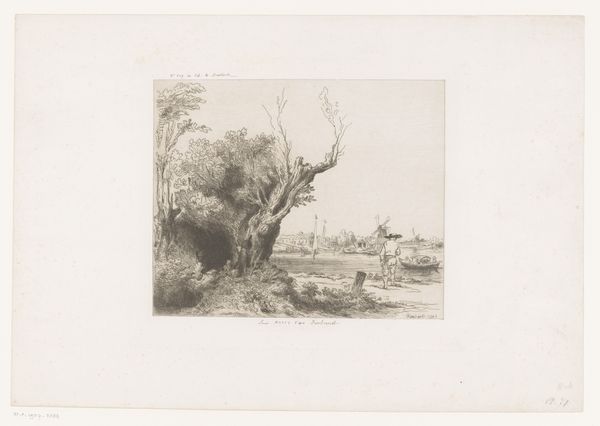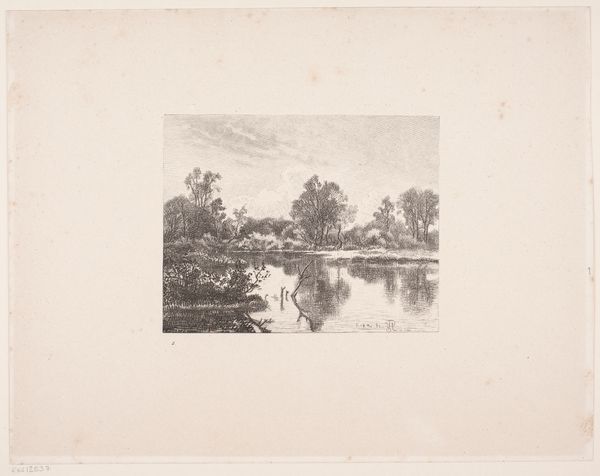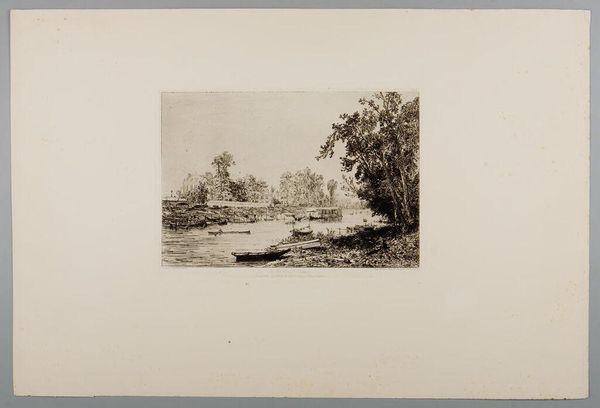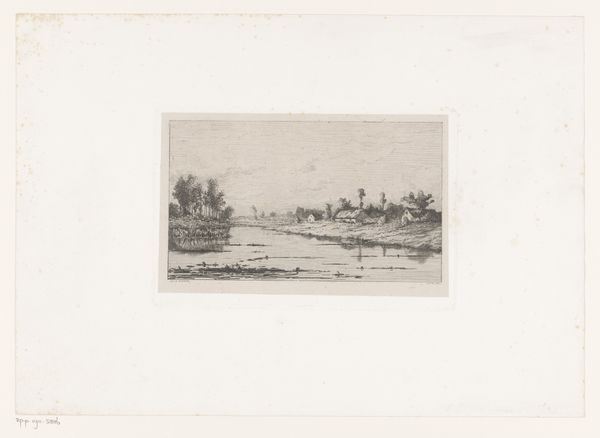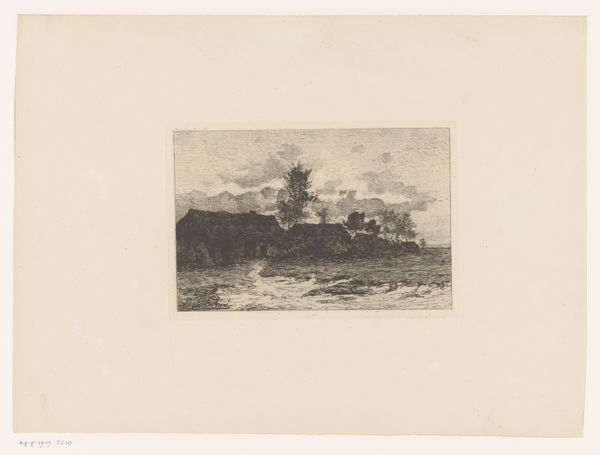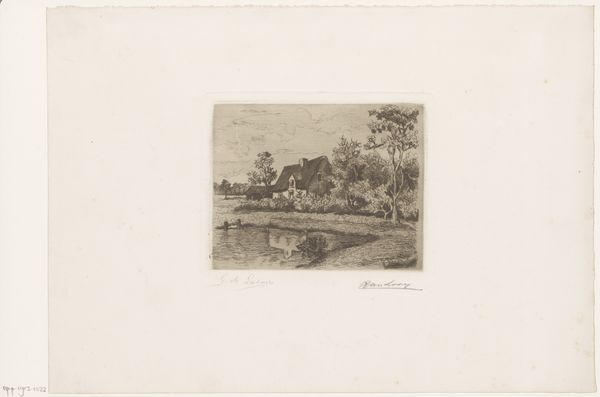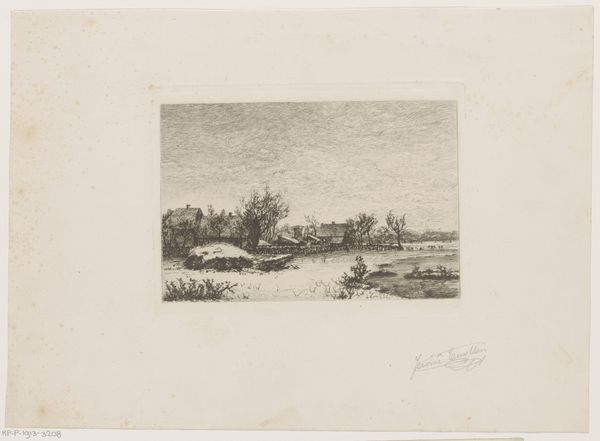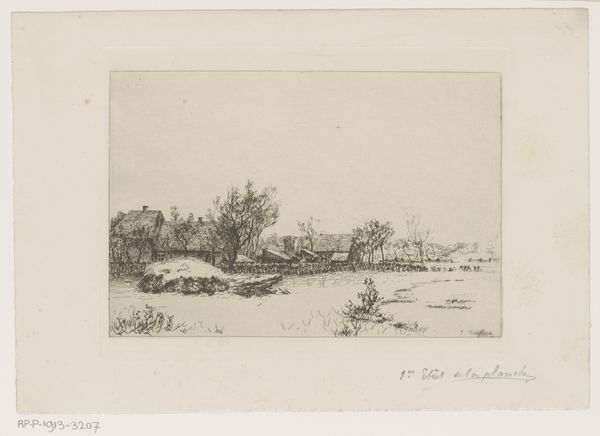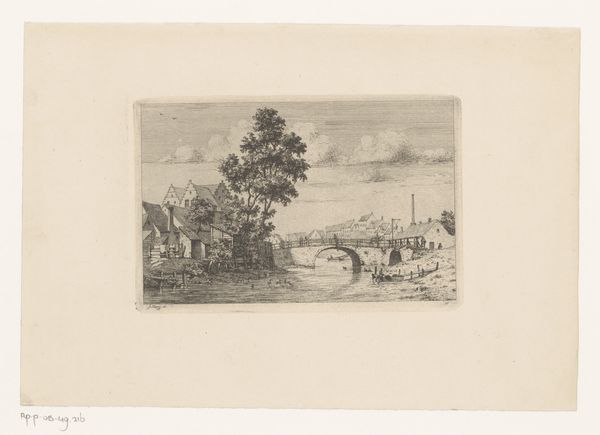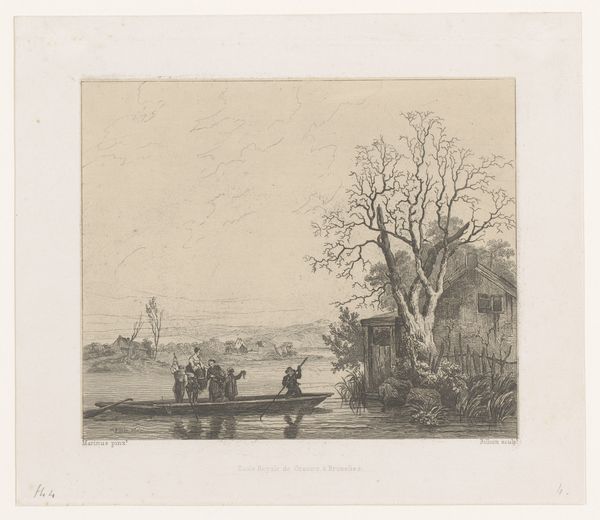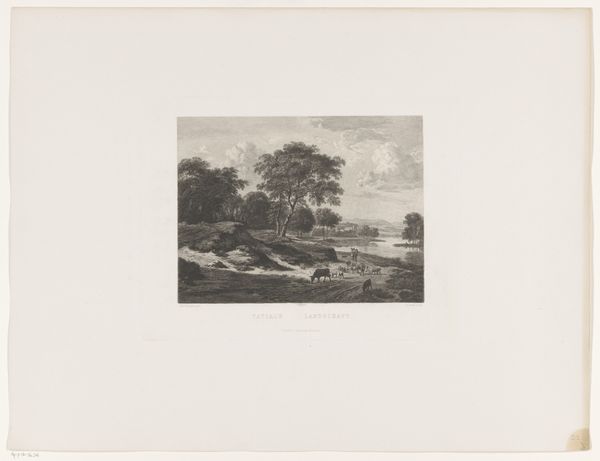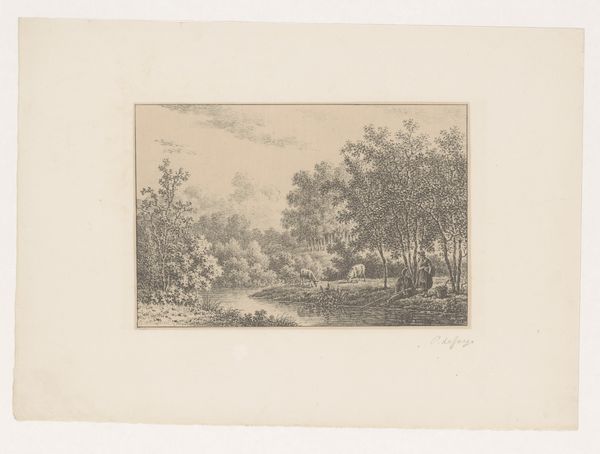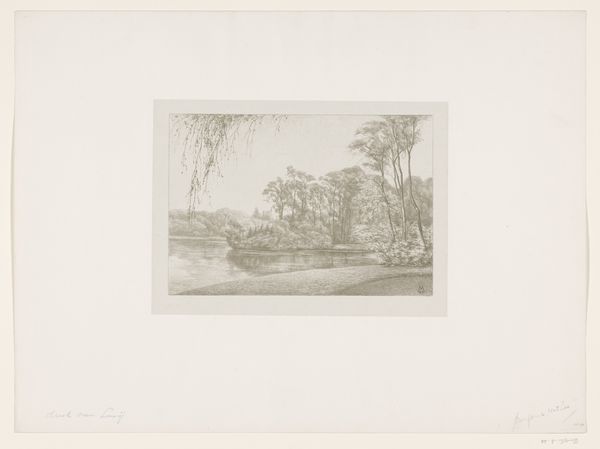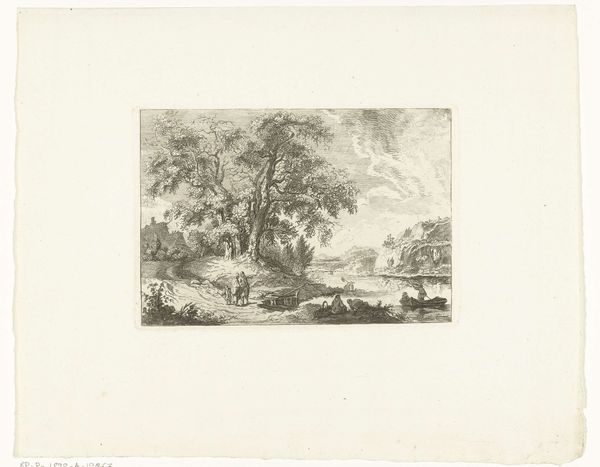
print, etching, paper
# print
#
etching
#
landscape
#
river
#
paper
#
cityscape
#
realism
Dimensions: height 178 mm, width 247 mm
Copyright: Rijks Museum: Open Domain
Maxime Lalanne made this view of the Seine at Neuilly using etching, a printmaking technique that reveals much about artistic production in the 19th century. The process starts with a metal plate, usually copper or zinc. The artist covers it with a waxy, acid-resistant ground. Using a needle, Lalanne scratched away the ground, exposing the metal beneath. The plate was then immersed in acid, which bit into the exposed lines, creating grooves. This process was carefully controlled to achieve different depths and thicknesses of line, which you can see here in the varying tones of the print. Once the etching was complete, the plate was inked, and the surface wiped clean, leaving ink only in the etched lines. Finally, the plate and a sheet of paper were run through a press under great pressure, transferring the image to the paper. The resulting print is a testament to Lalanne's skill and the labor-intensive process of etching, a blend of craft, chemistry, and industrial technology. It reminds us that even seemingly straightforward images have a complex material history.
Comments
No comments
Be the first to comment and join the conversation on the ultimate creative platform.
